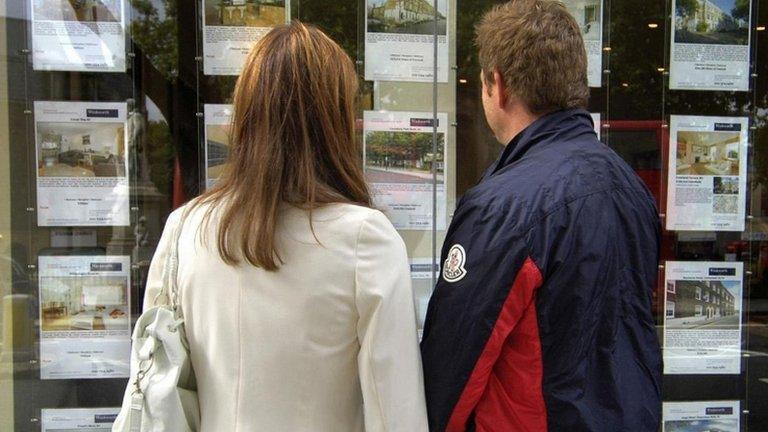No price like home
- Published
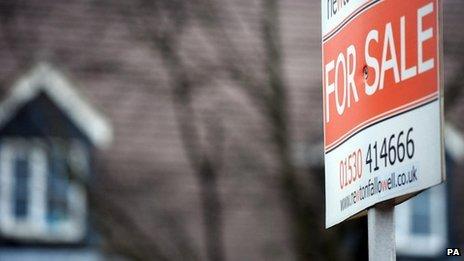
Surveyors body RICS says sellers have to be "realistic in their price expectations"
So, what's your home worth? It's hard to find anyone who can be sure.
That's because the market simply isn't functioning at the moment, and hasn't done for years.
It's not just that prices have fallen. Fluctuating prices are part of a healthy market. The problem is how illiquid the market is - that is, the mismatch between the willingness of buyers and sellers to enter the market and to trust prices. The number of transactions is far below a healthy level.
July and August, of course, have never been good months to buy or sell. But the latest report by the Royal Institute of Chartered Surveyors, external could have been issued most months - when the market's not in the doldrums, it's gradually declining.
It's found that the gap between upbeat and downbeat surveyors has been widening, with fewer buyers coming to the market, fewer transactions, lower prices and still lower prices expected.
The gradual nature of that price decline is important. Most people who watch house prices - and that's a lot of us - barely notice the rate of decline.
You're more likely to be concerned about the chances of finding a buyer at all. The value of your home is likely to be the least of your problems.
Reality gap
But the value of houses has declined significantly. The initial fall from the 2007 peak was of 14% in Scotland, but it's hardly been clawed back, now at 11% below that peak. That's from Nationwide's figures, and doesn't account for inflation.
Others have done much better in holding up prices, notably London, which saw a 20% plunge, but almost all of that has been made up.
The East Midlands of England, for instance, had as big a plunge, but it's now down as much as Scottish figures. Prices in Yorkshire and the North of England are down around 14%.
In Northern Ireland, tied to the stricken market in the republic, they know all too well that prices are down - by 52% from peak, and they're still falling.
The mismatch between buyer and seller has fuelled the 'reality gap' noted by a regular survey of advertising set against the same period's official register of settlement prices.
Property website s1homes told us this week that sellers are having to drop their prices by around 10% on average. They're more realistic in the flats and semi-detached end of the market. Those at the top end are having to drop prices by nearly 20%.
The exception found in the most recent analysis was in Edinburgh. That may be explained by the capital having a small element of the London effect: international money flowing into the more reliable and prestigious property markets, not least from those in the eurozone looking for a safe haven.
Edinburgh was certainly in the property investment sights of Asian investors as they headed towards their peak in 2007.
Confidence trick
For an upsum of other evidence about Scotland's property markets published recently, the Registers of Scotland, external - the most reliable indicator of all, though it's retrospective - showed prices falling by only 0.2% in the second quarter of this year. It also showed a significant rise in the number of transactions.
Why? The best explanation I've heard is that those who have been holding off a sale have concluded that the market's not going to bounce back any time soon, so they are pitching in before things get worse. Mind you, among the many contradictions of this confusing picture, that's at odds with the latest from RICS.
The most recent Lloyds TSB Scotland survey found a price drop of 2.7% at the first quarter of the year, down by 4.4% on the year. It also found a rise in the number of transactions.
The Bank of Scotland follows confidence levels about prices rather than prices themselves, and reckoned last month that more Scots expect prices to rise than to fall, by 28 to 22%.
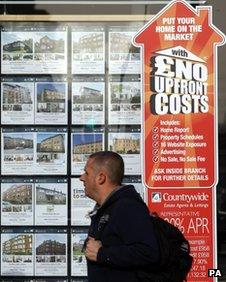
Sellers are having to drop prices by about 10% on average
Confidence is lower in Scotland than the rest of the UK. Job security is weighing on it, along with the cost of raising the necessary deposit, followed by the difficulty of accessing finance.
However, confidence does not follow economic fundamentals all that closely. And those fundamentals are still not looking good.
Prices are determined by those issues and more, if they're to reach a reliable equilibrium. The matching of buyers and sellers is clearly a problem.
Getting a mortgage looks cheap, and while interest rates are bound to go up some time, that date keeps slipping further into the distance.
Indeed, mortgage lenders recently told us that re-financing of loans is being put off in the hope that interest rates could fall even further.
But being cheap doesn't mean it's easy. Lenders are required to make it much more difficult than it was in the boom years. They're also expected to require bigger deposits.
No change there on earlier stages of the downturn. What's changed is that buyers have less disposable income, as that's been squeezed by earnings failing to keep pace with inflation.
As public sector workers have joined those in the private sector feeling nervous about their job security, the confidence of having future earnings has ebbed away for more of us.
So to return to the question, what's your house worth? The simple answer is - less than it was. But as these indices are not that reliable a guide at the best of times, it's worth remembering that every house is unique, at least in its location and often in its contents and state of repair. The only reliable way of finding out what it's worth is putting it on the market.
(An interesting article about this was in the Investors Chronicle recently, external, explaining the nightmare facing statisticians when they have to use 'hedonic regressions' to get to an average house.)
Olympic prices
Another answer is - why am I ignoring those who don't own a house? The market will only function again when people at the bottom end of it have the resource and confidence to take the plunge, and that may require further falls. Remember that lower prices are good news for those who don't yet own their own house.
Falling prices are only really bad news if they fall relative to other parts of the market, or other areas, or if you're banking on cashing in the asset valuation for some other purpose, such as your retirement.
One area that was expected to see a healthy increase relative to others is the east end of London, where all that Olympic spending is supposed to be helping to regenerate.
According to Lloyds TSB, the value of homes there has risen by 33%, or £70,000 since July 2005 when London won the competition to stage the games.
But then, Hometrack, offering different research, found the opposite.
It says the narrowing of the gap between the east end and central London at the peak of the market in 2007 is reckoned to have widened again.
- Published14 August 2012
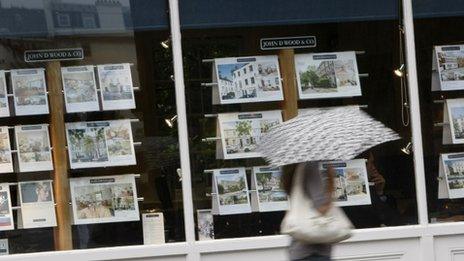
- Published13 August 2012
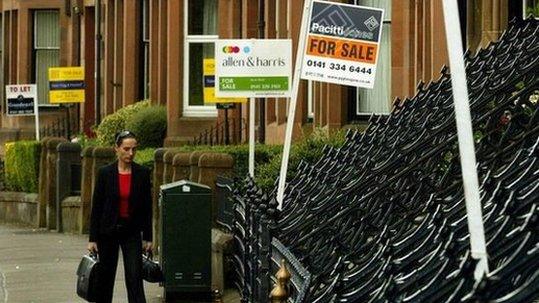
- Published31 July 2012
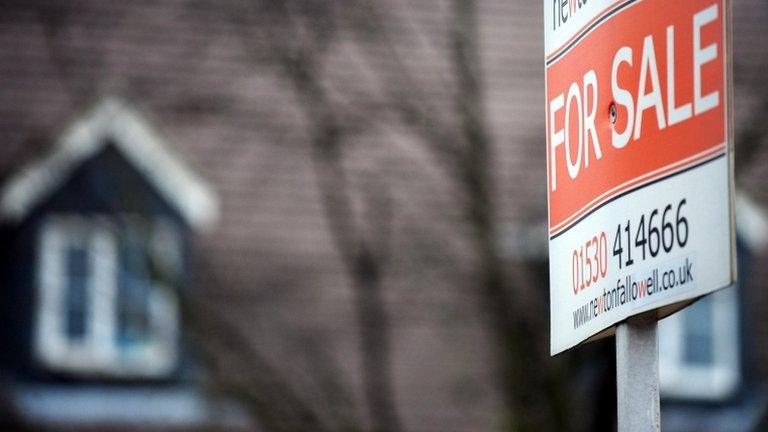
- Published10 July 2012
